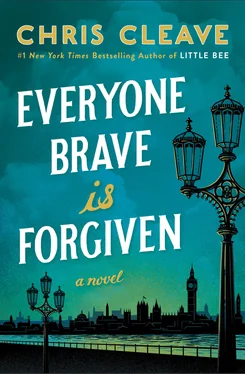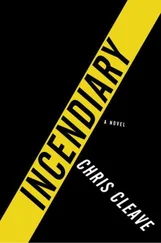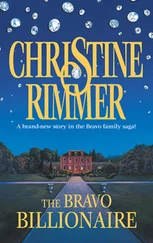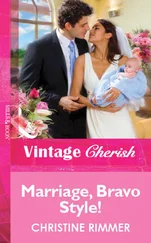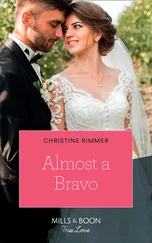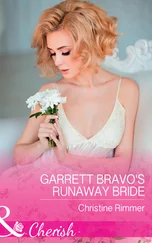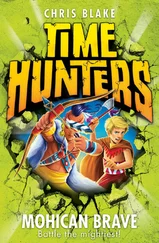She pushed the cold tea away and walked through the snow to Tom’s old office at the Education Authority. In the lobby she knocked the snow off her boots and told the receptionist that she wouldn’t leave until she was seen.
They let her up to see the new man, who was called Cooper. As he rose to greet her, he seemed to become blocked between his chair and the desk. He straightened ineffectually.
“Please,” said Mary. “No need to get up.”
He sank back down, apologizing with a vague gesture for what Mary took to be a bad back, or limited physical grace, or apathy.
Cooper was older than Tom — she put him in his mid-thirties. He was fair and slightly overweight. He had a mustache growing in. Behind him on the wall of the office was a small watercolor of Hampstead Heath that she had given to Tom in the summer. She had laughed until she gasped for breath as she watched Tom hang it there, one evening when his colleagues had all gone home. He had needed three nails and seven profanities. Afterward they had been quite indiscreet, and a great deal of paperwork had fallen from the desk to the floor. Tom had always kept his desk in such a mess.
Cooper saw her looking at the picture. “It’s Hampstead Heath.”
“Is it?” Mary caught herself saying, quite automatically.
How soon one became diminished. The man made a gesture that was imprecisely dismissive — whether of her or the heath or the watercolor, she couldn’t judge. “Dreadful, I’m afraid,” he said.
Mary felt a sadness as weary as his manner. Of course the poor man dismissed the painting. Such was the past, after all: it left the present cluttered with objects the survivors were immune to. She sat, folded her gloves in her lap, and lit a cigarette. He clasped his hands on the immaculate desk and looked down at his cuffs, as though she might have asked his permission. There was an ashtray — Tom’s, the heavy blue glass with the ambiguous inclusion in the heart of it that Mary had always rather hoped was an eyeball. Since Cooper made a point of not sliding the ashtray across the desk toward her, she made a point of using the carpet.
She said, “I should like to be assigned a new school. My preference is for primary, but if the only vacancies are at secondary then I can teach French, Latin and composition, as it says in my file. I am available immediately.”
“Do you not think,” said Cooper after a moment, “that under the circumstances it might be better to wait a while before you go back to work?”
“Wait for what? For children to forget their times tables? For H’s to be dropped in great mounds?”
He humored her with a smile. “I’m sure you know what I mean.”
“But I am quite all right. I am unharmed and able to return to duty.”
There was a long silence. “Must I spell out the sensitivities?”
“I’d rather you gave me a job.’
Cooper wouldn’t return her smile. He stood — apparently it was not so hard after all — and walked across the office. With his back to her and his hands clasped behind it, he looked out at the snow.
“My predecessor was very young, and decided to reopen some schools. I’m afraid the excitement of promotion got the better of his judgement.”
Mary shook her head. “His duty was to provide school places.”
Cooper gave her the tone reserved for a child who had got the answer jolly nearly correct. “Our duty, since you use the word, is to send the message that London under the circumstances is not the right place for the young.”
“And yet there are children the countryside won’t take.”
“But I don’t make the policy, and the policy is one of full evacuation.”
“Then what are we to do with the crooked and the colored and the slow? Are we to let them rot, simply because it is not policy for them to exist?”
“If you must split hairs, it is policy that such children exist but it is not politic for them to be schooled here.”
“Does it not seem that what you say is monstrous?”
Cooper turned from the window. “What is monstrous is that seven children and their parents are dead because my predecessor saw fit to let you play the pretty schoolmarm while the grown-ups were using the city for war.”
Mary blinked once, twice, then recovered herself. She fixed the man with a slight arch of the eyebrow as she lit a new cigarette.
He returned her gaze unsteadily. “I suppose we both wish we could undo it.”
Her hands shook. “We were hardly doing ballet on the roof. We were underground, in the shelter. People are killed in shelters every day.”
“Well it won’t happen in any school of mine.”
“Apparently not, if neither will any teaching.”
He patted her on the shoulder. “You’re emotional because you were so caught up. You are charming and young, and I don’t hold what happened against you. The one who should have known better is my predecessor.”
“Tom was my lover. It is well known. Won’t you stop speaking as if we weren’t both aware?”
“I am trying to protect your feelings, and the name of your family.”
“You might best serve both by letting me teach again. There are hundreds of children in this district, you know full well. One sees them on every street, poking around in the rubble.”
“I’m afraid there’s no position for you.”
“I apologize for becoming emotional. Please let me teach again.”
“Take a break,” he said gently. “God knows, I would if I could. Get out of town for a few weeks, blow away the cobwebs.”
She turned her back on him. In the little watercolor she had given Tom, the light was yellow and frisky. If you went at that light with an egg whisk, you could work up a froth to stand a spoon in. London stretched away beyond the heath. The landmarks stood. They had been so firmly attached back then that the artist had had to paint the sky around them.
She went to the window. “What can I do to change your mind?”
He said nothing. She moved closer, letting her arm brush against his as she smoked. “We needn’t put this city back the way we found it, you know.”
He gave an amused look that turned into something more serious. “Look,” he said, “it is overdue lunch. Why don’t you and I go for a bite and discuss it?’ ”
She tilted her head up to his, giving him the full benefit of her eyes. For a moment she let him drown himself.
“No, thank you,” she said brightly. “I’m not at all hungry.”
He stared at her, coloring slowly. He seemed inclined to strike her, then turned abruptly and left her alone at the window. She heard him banging drawers in the desk, collecting his coat and hat from the peg, slamming the door behind him.
She turned from the window and went to stub out her cigarette. The small painting of Hampstead Heath hung in the gray light, in its golden frame. She let her hand linger, for a moment, on the cold blue glass of Tom’s ashtray. She turned it on its axis — twice, three times — then left it where it was.
“I miss you,” she said to the empty office.
THEY CALLED THE NEW club the Joint. As if it weren’t a thing in itself but only a hinge between night and day. The bombers raised their tempo and the syncopated city matched the rhythm. When a raid interrupted the minstrel show now, the players rushed underground with the audience to join the big band that was already down there. They had cleared out the Lyceum’s great basement to make the club. There was a stage at one end, a bar at the other and alcoves in between where soldiers pushed their luck.
Zachary fetched drinks from the bar in exchange for coins and cigarettes. It was weeks since he’d last seen the sky. It suited him. If you couldn’t see the sky, it couldn’t see you. People patted him on the head when he fetched their drinks. They called him Baby Grand. Everyone was christened again now, sometimes two or three times, as if by this expedient every person might stay ahead of the war’s ability to call them by name.
Читать дальше
